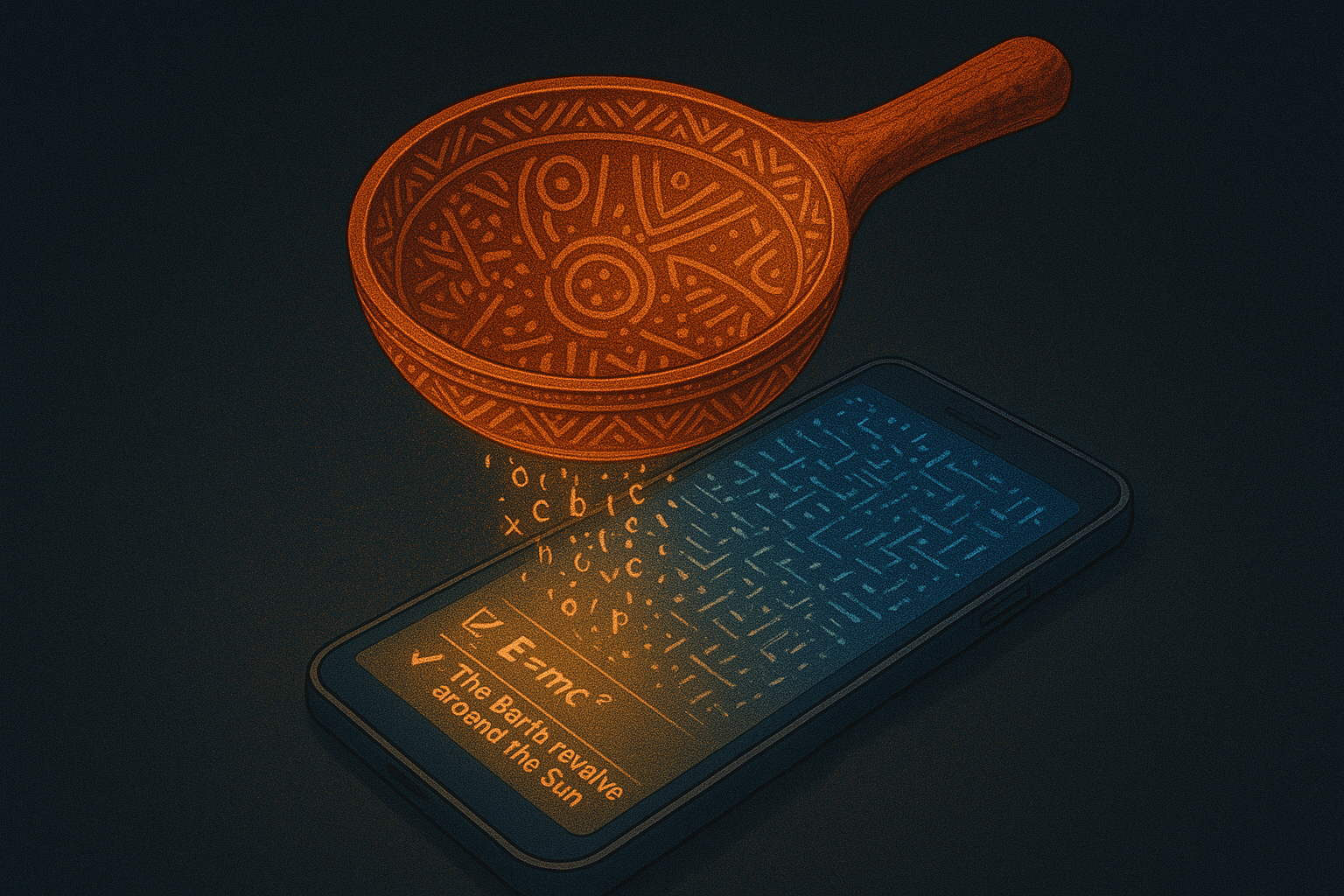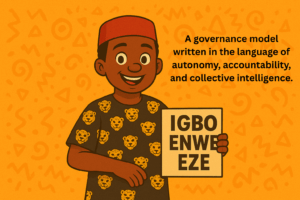How an ancient Igbo commitment to truth gives us the ultimate tool for navigating today’s digital lies
There’s a war being waged on our attention, and the weapon of choice is misinformation. From AI-generated deepfakes to cleverly edited videos, the digital world is flooded with half-truths and outright lies designed to manipulate, anger, and divide us.
But this is not a new battle. Our ancestors understood that a community built on lies cannot stand. The Igbo value of Ezi Okwu—Truth—wasn’t just a moral preference; it was a survival strategy. In the council of elders, a single lie could lead to a disastrous decision. In the marketplace, a false claim could destroy a reputation built over generations.
Today, that same commitment to Ezi Okwu is our most powerful defense against the digital deception flooding our screens. Let’s explore how we can apply this timeless principle to become guardians of truth in the modern world.
The Modern Onye isi: When Everyone Has a Megaphone
In the traditional Igbo setting, the Onye isi (leader/elder) was responsible for weighing evidence, listening to witnesses, and arriving at a truthful judgment for the community. They understood that truth was a process, not just a pronouncement.
Today, social media has made everyone their own Onye isi. With a single share or retweet, we can amplify a story to thousands. This is a tremendous power—and with it comes the ancestral responsibility to verify before we spread information.
The Digital Deception: The fake news story that confirms our biases. The emotional video that turns out to be staged. The AI-generated audio that makes it sound like a public figure said something they never did.
The DijịỌma Truth-Checking Protocol: An Ancestral Framework
Our elders didn’t accept stories at face value. They had a method for verification. We can apply this same rigorous thinking online through a simple protocol.
1. The “Gbaa Ajụjụ” (Ask Questions) Step: Consider the Source
An elder would ask: “Where are you coming from? Who told you this?”
Your Digital Action: Before you believe or share, ask:
- Who is the original source? Is it a reputable news organization or a random blog?
- What is their motive? Are they trying to sell something, win a political argument, or get clicks?
- Are other trusted sources reporting this? If a story is only on one obscure site, be skeptical.
2. The “Lelee Anya” (Look Closely) Step: Inspect the Evidence
An elder would examine physical evidence and look for inconsistencies in a story.
Your Digital Action:
- Look for the original. Has a video been edited? Is a quote taken out of context?
- Check the date. Old images and videos are often recycled and presented as current events.
- Reverse image search. A quick search can reveal if a powerful image is actually from a different event or country.
3. The “Jụọ Ndị Ọ Maara Ihe” (Ask Those Who Know) Step: Consult Experts
In the village, you would consult a blacksmith about metals, a farmer about crops, and a elder about history.
Your Digital Action:
- Consult fact-checkers. Sites like AFP Fact Check, BBC Reality Check, and others are our modern “experts.”
- Trust subject matter experts. On scientific or technical matters, listen to scientists and professionals, not just popular influencers.
4. The “Were Obì” (Use Your Heart/Mind) Step: Apply Emotional Discernment
Our proverbs teach “Onye uto ochi, o nyiri ya anya” (He who is enticed by a sweet thing, it has blinded him). Misinformation often preys on our strongest emotions.
Your Digital Action: Be wary of content that makes you:
- Extremely angry at a particular group or person
- Overly fearful about an imminent threat
- Unusually proud in a “us vs. them” way
This emotional trigger is often the first sign that you’re being manipulated.
The Call: Become a Modern Truth-Teller
In a world of digital shadows, being a bearer of Ezi Okwu is a revolutionary act. It means:
- Being quick to listen, slow to share. Let information settle before you amplify it.
- Correcting misinformation gently when you see it in family groups and chats.
- Admitting when you’re wrong. True strength lies in correcting course, not stubbornly clinging to falsehood.
When you commit to Ezi Okwu, you do more than protect yourself—you become a pillar of your digital community. You honor the ancestors who understood that a society cannot thrive when truth becomes optional.
Your Truth-Telling Mission This Week: The next time you feel that emotional urge to share a sensational story, pause. Hear the voice of our ancestors whispering “Jisie ike na ezi okwu”—be strong in the truth. Run it through the protocol. Be the Onye isi your digital village needs.
This is the DijịỌma Way: Using the wisdom of our past to navigate the complexities of our present with integrity and discernment.
Daalụ for reading! Have you encountered misinformation in your community? Share how you identified it using #CulturalCode.


Leave a Reply